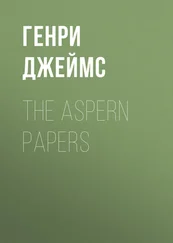***
What turned night into day, as Cartwright described it, was a phone call from a Captain in Army Intelligence inviting him to a spot of luncheon the following day, their place. Unusual, thought Cartwright. Due to his pugilist history with the uniformed branch of intelligence circles, he certainly was not treated as ‘one of us,’ nor had he been ever invited to lunch at ‘their place,’ the lair of his most bitter antagonist.
Lunch was with a face he recognised, and introduced himself as Major Whiteford. Walking stick user, another remnant of the Great War. Whiteford informed him over the indifferent oxtail soup that they had recently discovered, through sources, the alarming and unexpected growth of the German Army, the Wermacht, and its industrial base suppliers, and in their considered opinion it was beyond what the War Office considered as a legitimate and acceptable. Whiteford passed this bombshell in a monotone nasal voice, complementing a bland, impassive poker player face. Ideal committee man or, heavens above, a politician, thought Cartwright. Whiteford could blatantly contradict himself in the same sentence, look one in the eye, and vehemently argue there was no ambiguity in the statement.
Cartwright put down his spoon and stared at his luncheon companion. Did he hear right? Now he knew the reason for the lunch. He could not believe his luck on one hand, and an immediate sense of foreboding on the other. If the principal flag bearer of Nazi Germany had completely done a volte-face, then what exactly did they know? Cartwright did not react. He kept his peace. Let the Major talk.
Whiteford waited for the soup bowls to be cleared, a pregnant pause in this mea culpa moment which lasted for a full half minute. As soon as the corporal steward had delivered the steak pie and retreated through the swing door into the kitchen, Whiteford started to continue, but Cartwright stopped him by filling up both glasses with the equally indifferent house red wine. He felt a sense of power. He was the winner. The victor ludorum. He signalled Whiteford to continue.
‘As you are aware, we have argued that German arms output could not, would not exceed 1933–34 levels. This was based, as you know, on the highly speculative nature of figures, and the uncertainty regarding Germany’s economic future, with the proviso that likely rate for new army divisions would increase … err … slowly, based on what we knew,’ he hastily added.
No, it’s what you wanted to believe, thought Cartwright bitterly.
‘We have also to take into account the recent announcement from Berlin that the period of conscription service in the army would be increased to two years. Then we got unwelcome news that the Werhmacht has expanded beyond peacetime strength of thirty six divisions to thirty nine.’ All this was relayed between mouthfuls of pie and assorted vegetables, and the odd gulp of wine. ‘The Reichswehrministerium made lame excuses to our Army Attaché in Berlin about misunderstandings over whether the three armoured divisions were, or were not, to be included into the total. We have concluded that the Germans deliberately misinformed our attaché. Further expansion is inevitable,’ Major Whiteford carefully laid down his knife and fork, ‘therefore, Alastair, we agree with your recent German rearmament analysis. More wine?’
The game had changed; he now had the backing of all intelligence agencies. He wondered if certain members of the JIC had anything to do with this road to Damascus event. He never found out. Never enquired.
By happenstance, Whiteford and three other Military intelligence officers were re-assigned the following week, and Cartwright was invited to place one of his DCs in the Army Intelligence camp. On the proviso, Cartwright insisted, that it was a loan. That same day, Cartwright signed four authorisation dockets: one for the temporary transfer of Dr. Michael McDougall (armoured steel expert, Vickers-Armstongs Ltd., Sheffield) to the IRS at Queen Anne’s Gate, and a phone tap on the London home telephone of Colonel Geyr von Schweppenburg, the German Military Attaché, as well as his rented weekend cottage in Berkshire, and Luftwaffe Colonel Albert Wenninger, the German Air Attaché’s flat in Curzon Street, Mayfair.
***
The IRS staff were by now confident in their work. It was all about sources, experience and cooperation. All hail the DCs! Particularly in their handling of statistical data. By mid-summer 1936 the IRS was a ship with billowing sails, a full crew, a manifest of deliverables, and Cartwright as its indisputable captain and figurehead. Collecting, sifting and analysing data as it docked, loaded and sailed between six continents.
Time to notch up a gear. Early in August 1936, the usual Monday morning meeting of minds was cancelled. It was decided by Cartwright to have it transferred, until further notice, to Fridays. So said the type written memorandum on the communal noticeboard. Monday had been the usual allocation of tasks and ‘to do’ lists, discussion of conclusions to tasks completed, and proposal of remedies to ‘stuck’ projects, as well as allocation of individuals to groups for another hot-to-trot assignment, and planning for the week ahead. Cartwright decided that a Friday was a better day.
With minds full of Friday meeting discussions and conclusions, a restful weekend away from the ballroom was best to mull over highlighted problems, recognise and appreciate the unseen; to appreciate the unknowns. To solve a problem, the exact cause of the problem has to be identified. He was a great believer in sleep, and its ability to facilitate memory consolidation, waking up to that ‘eureka’ moment.
That Friday, they gathered as they usually did for the meeting in the centre of the ballroom, and around the large rectangular table usually reserved as a work-day dumping ground for files, books and whatever else required a temporary resting place. Chairs were carried or dragged, others preferred to stand or perch on adjacent desks.
Cartwright, with a mug of tea in his hand, opened the proceedings with his usual M’sieurs-dames … introduction – a habit carried from the Great War. He gave a brief operational summary of the situation in Spain now that Germany, Italy and Russia (he still preferred to call it by its Tsarist name) had entered the fray. He then linked it to Hitler and his hot-off-the-press Four Year Plan. Cartwright talked for half an hour. He covered the Spanish strategic mineral export situation; the involvement of the new German-Spanish mineral joint venture; he pointed his mug of tea at Andoni, who now preferred to be called Anthony, Arriola, back row standing, and told him to follow it up. Cartwright continued with the shipments of war matériel into Spain including personnel from both Germany and Italy; and the goings on at the Gaylord hotel in Madrid, where the Russian NKVD advisors to the Nationalist government were billeted. A mildly risqué anecdote he had heard concerning a Russian intelligence officer and a street flower seller got most of the crew giggling and some laughing. ‘Let me finish, please … the upshot was that the flower seller had a husband, they wrangled compensation and are now the proud owners of a florist shop on Calle Segovia.’ Someone at the back did a flamenco staccato clap and shouted ‘Ole!’
After the formation of the Joint Intelligence Committee in June, and the lunch apology from Whiteford, he now had the backing of all concerned to concentrate on the implications of Hitler’s Four Year Plan, which, in his considered opinion, was dedicated to muscling up the country for war, and probably before the four years are up. ‘Crafty devil is Herr Hitler. He just can’t wait.’
‘It is not our main task to find out how many aircraft the Luftwaffe has,’ he said quietly one Friday morning, ‘but it is our job to find out, for example, if the Lufwaffe would have enough fuel to fly, and for a sustainable time under continuous combat situations. Does Germany have enough iron ore to manufacture more of those spanking new panzer tank divisions we’ve just heard about, let alone the Kriegsmarine’s new ship building plans? Even if there was a complete sea blockade?
Читать дальше












